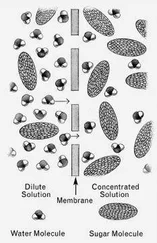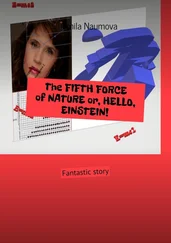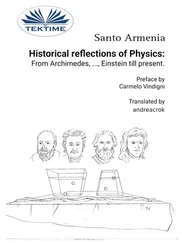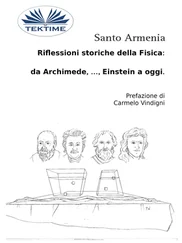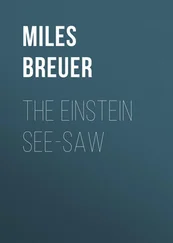“Your projections show that?” asked Alice. “But no one can… What kind of projections are you running?”
“My colleague Roger did them. Um, Roger is — how shall I put it? — extremely smart to begin with, and on top of that he’s had his intelligence boosted by the advanced biotech I mentioned. He’s developed a new kind of projection technique that no one else has even heard of. And he has the advantage of knowing what happened, will happen, might happen, dammit, in our future. He has two histories against which to calibrate his technique. That turns out to be an enormous advantage.” “And what does, uh, did happen in the universe you came from?” Alice asked.
“Bush was reelected, the SSC was built, and the universe was destroyed,” said George.
“And how did that involve you… and me?”
“That’s a very long story,” said George.
“I’ve got time,” said Alice, looking at her watch. “Tell me about it.”
After George had finished and was sipping his cognac, Alice remained quiet for a time.
“If I can believe you,” she said finally, “you literally have the power in your own hands to cure all human ills. You can cure cancer, hemophilia, MS, AIDS — anything. And you can transfer that ability to anyone else. Yet so far you’ve only used that power to make money and to tinker with politics. Why haven’t you done more, George? How could you not do more?”
“Ah,” said George, “you have arrived at the place where Roger and I have been living for the last six years, the central dilemma. Of course, you’re correct. We don’t have to keep the techniques to ourselves. We could spread Reading and Writing through the entire population of the world in a few months. We could put the Makers’ download on the Internet for anyone to access, and we could mount a multimillion-dollar advertising campaign to publicize it. And what would the consequences of that be?” He paused, looking at her.
“I don’t know,” Alice said finally.
“That’s the correct answer, Alice. I don’t know, either,” said George. “And Roger doesn’t know. But his attempts at predicting the outcome are frightening. Riots, revolutions, wars, terrorism, you name it. . It would be too much of a change too fast. The human race is smart and adaptable, but probably not that smart and adaptable.”
“But what’s the alternative?” Alice asked. “You can’t just do nothing.”
“Oh, we are doing things,” said George. “But we’re proceeding slowly and carefully. We’ve prodded a few selected physicists and mathematicians in what we know are the right directions. We’ve encouraged them with research money. We’ve also done similar things on the molecular biology front. And in a few instances, we’ve acted more directly. No one has noticed yet, but the last flu virus to make the rounds leaves its recovered victims a bit smarter and with an improved immune system.” He smiled.
“But you could cure cancer,” said Alice. “Every year thousands of people die of cancer while you do nothing. My mother died of cancer, dammit.”
“I know that,” said George. “Look, we could save some people. In fact, we have, in a few cases. But releasing a general treatment in the correct legal way takes time because of federal government drug regulations. A biotechnology company I own is now in the middle of FDA testing of a drug that provides a fairly general cancer cure, but it won’t be available outside of test groups for perhaps ten years. We’re sure it works, but the FDA will only be convinced by clinical tests that take a long time. That happens to be the way our present medical system works.”
“I still don’t understand,” said Alice.
“Look,” said George, “Roger and I spent much of the first year we were here deciding how to proceed. We can’t do everything. Our top priority is to stop the SSC project, in order to gain more time. We have to prevent the Hive from finding us in 2004. We’ve been focusing mainly on that.”
“But you know how to do so much more,” said Alice.
“Not really,” said George. “We didn’t have enough time to receive much instruction from Iris on how to use Writing before the Hive arrived. Consequently, we don’t have enough experience to use the technique now with confidence. It has too much potential for mistakes, for doing things that are harmful and irreversible. We have to be careful, so we’ve only used Writing in very limited ways so far. We’ve only made viruses and nanomachines that are guaranteed to stop reproducing and die out after a fixed number of generations. To do more, we need teams of the best people working full-time on learning the subtleties of Writing, not just two preoccupied people with only limited time to dabble at it.”
“It must be frustrating,” said Alice, “having to move so slowly when you could do so much.”
“If you join us, you’ll learn just how frustrating it is,” said George.
THERE IS AN UNDERGROUND LAYER TO THE COMPLEX of majestic white marble buildings that are the center of the U.S. federal government. Under the busy streets and parklike lawns surrounding the Capitol Building a small subway system connects both the House office buildings and the Senate office buildings with the Capitol. Electric minilocomotives tow chains of open passenger cars back and forth along subterranean tunnels. Senators and Congressmen are transported to their vast marble chambers in the Capitol Building to record their roll-call votes, then returned to the vast complex of congressional office buildings where most of the actual work of Congress is done and where most of the hearings and committee meetings are held. Congressional staff members, secretaries, interns, lobbyists, and visitors ride the same underground railway, playing their varying parts in the processes of the federal government. George Preston and his new lobbyist, Alice Lang, jumped onto an open subway car just as the little train was leaving its Capitol terminus. It was raining hard outside, and at Alice’s suggestion they had made the trip from House to Senate office buildings by riding the House subway, walking the length of the Capitol subbasement, and then riding the Senate subway. It was a busy route, and to George it seemed to be filled with twenty five-year-olds in new-looking tailored business suits. These kids run the government, he thought.
Arriving at the Senate end of the line, George and Alice followed the signs to the Dirksen Senate Office Building. After a cursory check inside their briefcases, a security guard directed them through the arch of a metal detector. They waited for a “nonmembers” elevator and took it from the subbasement to the second floor. Finally they reached Room 229, the offices of Senator Dale Bumpers of Arkansas. Alice was greeted by the receptionist, who seemed to recognize her from previous visits, and they were shown into a conference room. “Barbara will be with you real soon,” she said, her Arkansas twang proudly displayed in her speech.
“Barbara Warburton is Senator Bumpers’s staff person dealing with energy-related matters, which means the SSC,” Alice explained. “She’s very nice.”
“I’m not sure what we’re doing here,” said George. “I didn’t think Dale Bumpers was on the right appropriations subcommittee to do us much good.”
“I should have explained,” said Alice. “Last June the House, led by our friends Eckart and Boehlert, voted 232 to 181 to kill the SSC. They zeroed out all SSC funds in the Department of Energy appropriations bill. The Senate, over Bumpers’s objections, voted 62 to 32 to continue the SSC at the level of $550 million. Since the two houses of Congress passed different bills, they have to meet in a joint conference committee to iron out their differences. Bumpers wasn’t appointed to that joint committee, but as an interested party he’s attending as an ex officio member with voice but without vote. He’s there pushing for adoption of the House version of the bill. He’ll call Barbara immediately after the vote.”
Читать дальше




